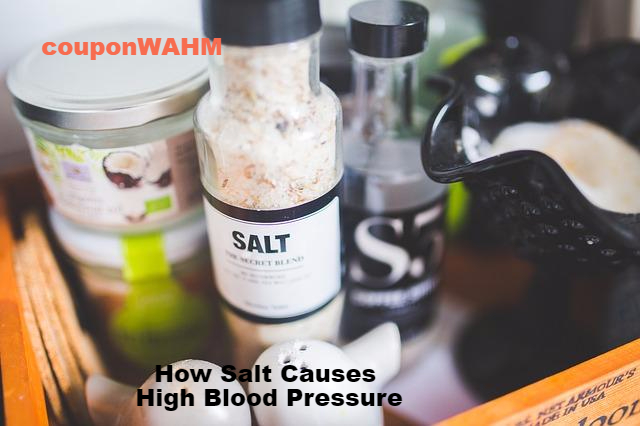
You probably know that too much salt in your diet is bad for you. How much is too much? The American Heart Association recommends consuming a maximum of 1,500 mg of sodium each day. The Federal Drug Administration (FDA) suggests eating no more than 2,300 mg of salt on a daily basis. The FDA in 2016 is thinking about possibly lowering their Recommended Daily Allowance (RDA).
That means if you consume between 0.65 and 1.0 teaspoons of sodium each day, you have hit your healthy limit. Too much salt in your diet can lead to osteoporosis, a debilitating bone disease. It raises your risks of developing diabetes and stomach cancer, becoming overweight and obese, and promotes neurological disorders through a weakened vascular state.
As far as health conditions go, salt is most notoriously known
for cranking up your blood pressure.
Just exactly how does salt cause your blood pressure to spike? Before that process is explained, you should understand that sodium is part of a healthy body. Salt helps your kidneys to retain water. This is needed to maintain circulation and a healthy blood pressure level. This process also helps your heart pump oxygenated blood throughout your body.
Unfortunately, too much sodium can throw off the delicate balance that keeps you healthy. It pulls too much water into your blood vessels, which pumps up the volume of blood inside those vessels. When too much blood is flowing through your blood vessels, this increases your blood pressure. If you put too much air or water into a balloon, the balloon pops.
This is a simple example of what is happening to your blood vessels. They are receiving much too much pressure and volume, which can injure the blood vessel walls and promote the buildup of unhealthy plaque. This blocks blood flow, your excess sodium continues to raise the pressure in your blood vessels, and those 2 issues can lead to heart disease, heart attack, stroke and the other health conditions mentioned earlier.
People in modernized nations eat way too many processed and fast foods. This is a problem because fast foods, foods that have been heavily processed and roughly 70% to 80% of all the food at your grocery store contain unhealthy per-serving levels of sodium. This means that you are probably getting too much salt in your diet without even knowing it. Coupled with the fact that the first symptom of high blood pressure is often death means that you should start today cutting back on the amount of sodium in your diet.
